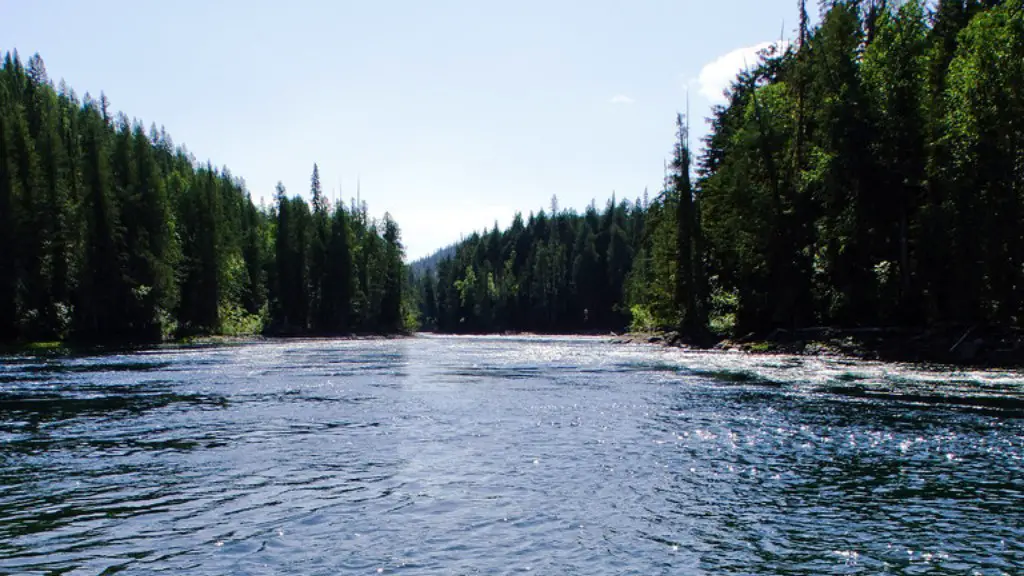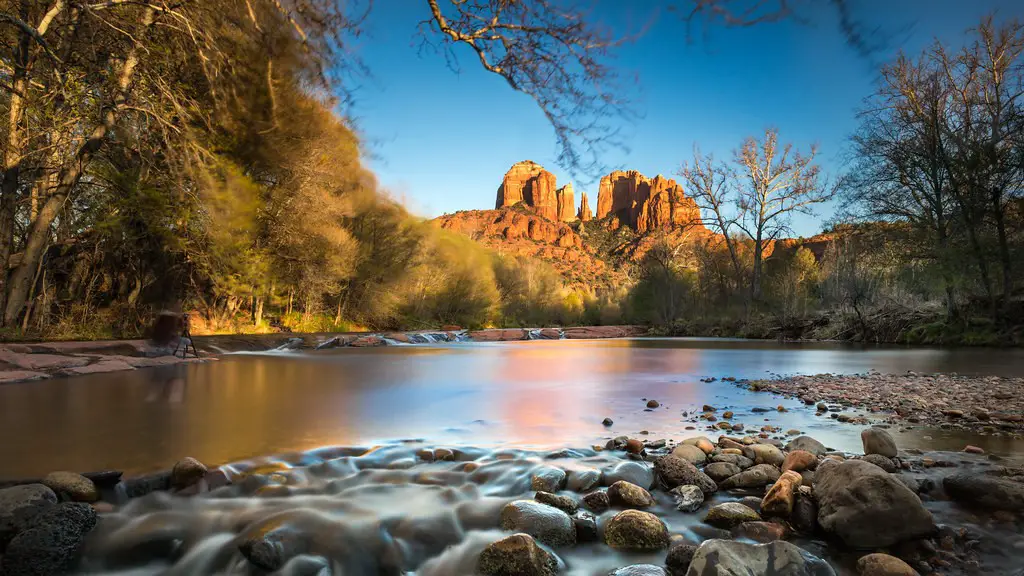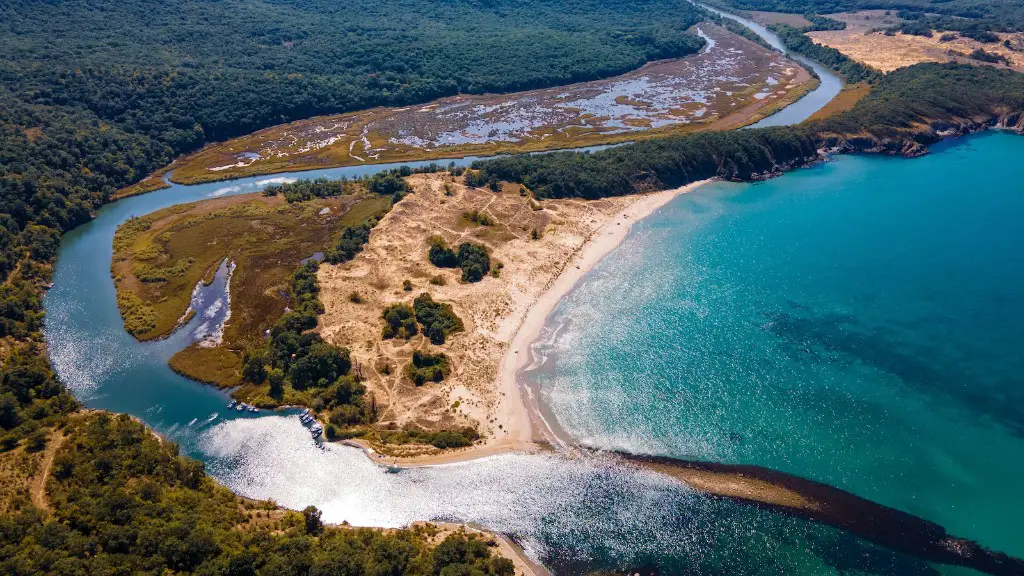Development of the USA
The United States of America has always been greatly impacted by rivers. Since settlement in the 17th century, many cities have sprung up around rivers and have grown to become iconic symbols of the nation. Of all the rivers, the Mississippi has been the most influential in the development of the country. Not only has it helped the country progress, but it has shaped the economy and changed the terrain of the land so much that it is hard not to see the effects.
The Mississippi River has been important since the beginning of American history. It has served as a way to traverse the expanses of the country, providing navigation and commerce since the 17th century. Its meandering courses provided access to parts of the country that would otherwise have been too difficult to reach. As the country grew, cities, towns and settlements cropped up along its banks and flourished. The south has always been heavily reliant upon the river for commerce, but its influence has spread across the nation.
The river has also had major impacts on the environment of the country. As the nation grew ever-more industrialized around the turn of the century, the river began to suffer from pollution. Overfishing and overharvesting of its resources brought fish populations to a low and further polluted the waters. In response, conservation efforts have been put in place in order to protect the river, restoring the life and health of the nation’s waterway while making sure its resources are available to future generations.
The river has also been instrumental in connecting people through its many cultural events, music and art venues, and festivals. Music and art are often associated with the river, finding expression through the stories and tales of its history and through the visitation of its many sites. From what started out as a small stream, the Mississippi has grown in importance to become one of the biggest influences in American culture.
The Mississippi River has been an integral part of American life for centuries, providing for the development of the nation, shaping its geography, and offering respite and solace for its people. In its influence, it has proved to be a source of national pride and a source of identity for those who have resided along its banks and across its expanse. It has been a vital artery connecting the people to one another through its ever-changing current.
Development of Agriculture
The Mississippi River is credited with helping to develop agriculture in the USA. The availability of fresh water and the fertility of the land around it made it possible for settlers to cultivate crops and expand their crops for years. It is estimated that the river has enabled up to two million acres of farmland to become available. This provided much of the yields used to feed the country, giving rise to various settlements along the riverbanks.
The soil composition and land fertility levels are also iatributable to the river. The silt deposited by the fast-moving waters was used to make the land more arable and able to produce higher-yielding crops. This, combined with the access to water and nutrients, vastly augmented the capabilities of settlers’ farming. This kicked off a massive expansion of settlements and trade, leading to the establishment of towns and countries along the banks.
However, not everyone views the river it in such a positive light. Factors like flooding and sedimentation can cause damage to the quality of both the land and water. Environmentalists have pointed out that pollutants like chemicals in the nearby factories and farms can have damaging effects on the river. These pollutants are a major threat to the river, and have been contributing to the disappearance of wildlife since the beginning of the industrial revolution.
Despite these issues, it is clear how much the river has contributed to agricultural development. From the early establishment of settlements to the present day, plenty of farmers depend on the river for an influx of fresh water and vital nutrients for their crops. The Mississippi River has become an integral part of American agriculture, providing food for the nation for centuries.
Transportation
Transportation has always been severely hindered by the state of the land and the distances between the different parts of the United States. The Mississippi River has provided a way to circumvent this and begin trade between the eastern and western parts of the country. The river is navigable almost all the way to its source in the heart of North America and provides a gateway to vast access points, thus allowing for trade and transportation.
The river was an integral part of settling the so-called ‘Wild West’, especially in the early 19th century. As many of the states in the Midwest and Great Plains had not seen much human interference until then, the Mississippi River became the quickest way to cross large distances and establish settlements on the other side. Many of the settlements on the eastern bank of the river were established by migrating settlers travelling from the east and landing on the opposite shore.
The river also had an effect on the many boats and vessels built during the industrial revolution. The developing infrastructure of bridges and locks enabled boats, tugs, and ferries to continue up the river and thus avoid the dangers posed by the open sea. This made it possible for goods and supplies to reach all of the nation’s territories and beyond.
The Mississippi River has been the backbone of America’s transportation industry. It has provided trade, settlement, and connectivity to the remotes of the United States. Without the river, many of the advancements of the nation would have been unattainable. Even now, with the advances in railroads and motorways, the Mississippi provides an essential and accessible way to transport goods across the country.
The Mississippi River is not just a river; it is a system that connects people and places. Before the invention of trains, motorways and airplanes, the river served as a way to transport goods and passengers from one town to another. This opened up the Midwest and Great Plains for settlement, leading to some of the most vibrant cities in America.
The river also opened up further opportunities for the establishment of businesses. From the early settlement of settlers bringing goods from the east to the later development of entire fleets of barges, the river continued to be the main focal point for commerce across the country. As towns and cities were built along its course, the trade provided much-needed economic benefits to the people.
The river also enabled navigation to other areas of the country. Much of the north and south were inaccessible to settlers before the formation of navigable channels along the water. This enabled settlers to find and make use of unclaimed land, setting up settlements and bringing life to the barren areas.
The river has been a fixture in the expansion of the nation since its earliest days and continues to be so. Navigation was an integral factor in the development of the nation, providing access to resources and providing new economic opportunities. The character of many of the towns along the banks of the Mississippi River is evocative of a rich history of exploration and prosperity.
Cultural Legacy of the Mississippi
The Mississippi River is a symbol of life and culture in America. Its history stretches back to before the nation’s founding and is surrounded by stories, epics, and myths that have become a part of the nation’s identity. From its earliest days, the river has been a focal point of the growth and development of the country.
The river’s importance is reflected in the many works of art it has inspired. Novels, films, songs, and plays have all been dedicated to depicting its impact on American culture. The music of many blues and folk icons has imagery tied to the river and speaks to the significance of the river in the heart of the nation.
In spite of its long been an icon of American culture and history, the Mississippi remains an incredibly ecologically diverse area. Even with the pollutants present, the river still possesses stunning views, vibrant wildlife and diverse ecosystems. Its importance to the ecosystem of the country is paramount and hopefully, with awareness and conservation, will remain a source of life and culture for generations to come.
Environmental Impact
The Mississippi River has deep and wide-reaching effects on the environment, both positive and negative. It is estimated that a third of the United States’ population and economy is connected to the river in one way or another. From allowing the transport of goods and people, providing sustenance to the people who live around it, and enabling the production of energy, the Mississippi River has influenced the lives of millions of people.
The river has also seen its share of environmental fallout. Overfishing and overharvesting have led to the depletion of an array of species. Pollutants from factories, upstream, and on the banks can be seen all along the course of the river. Despite advances in means of controlling and treating the water, much of the damage occurring to the river is irreversible.
The river has also been subject to changes in the climate including droughts, floods, and rising sea levels. The more volatile weather patterns have made it difficult to predict and calculate the potential dangers posed by the instability of the river. This could lead to the erosion of the land, a decrease in land fertility, and a disruption of habitats.
The Mississippi River carries with it an incredible power for both prosperity and destruction. Without its presence, the United States would not look the same it does today, and the influence of its importance is unmistakable. Its conservation and protection remain of prime importance for the United States, and its health will be central to the country’s future growth.
Environmental Protection
In the face of environmental issues like pollution and the overuse of resources, states along the Mississippi River have come together to do their part in protecting the river and its resources. Concrete and governmental steps have been taken to conserve the waters and reverse the damage previously done.
In recent years, there has been an increased effort to improve the cleanliness and sustainability of the river. This includes the removal of pollutants, the conservation of resources, and the introduction of rules and regulations to protect the health of the river. These efforts have led to a stronger and healthier river, with more viable waterways and a renewed abundance of wildlife.
The states have also been enacting laws in favor of sustainable development. Financial incentives have been put in place to boost the conservation of natural systems, as well as regulations on land and water management. Additionally, there have been educational programs to ensure the public’s understanding of the importance of the river and how to protect it.
The Mississippi River is an irreplaceable part of American life and culture. Its protection and sustainability will be of paramount importance for the future of the states surrounding it. By taking the necessary steps, the United States can make sure the river remains an icon of national pride for generations to come.





